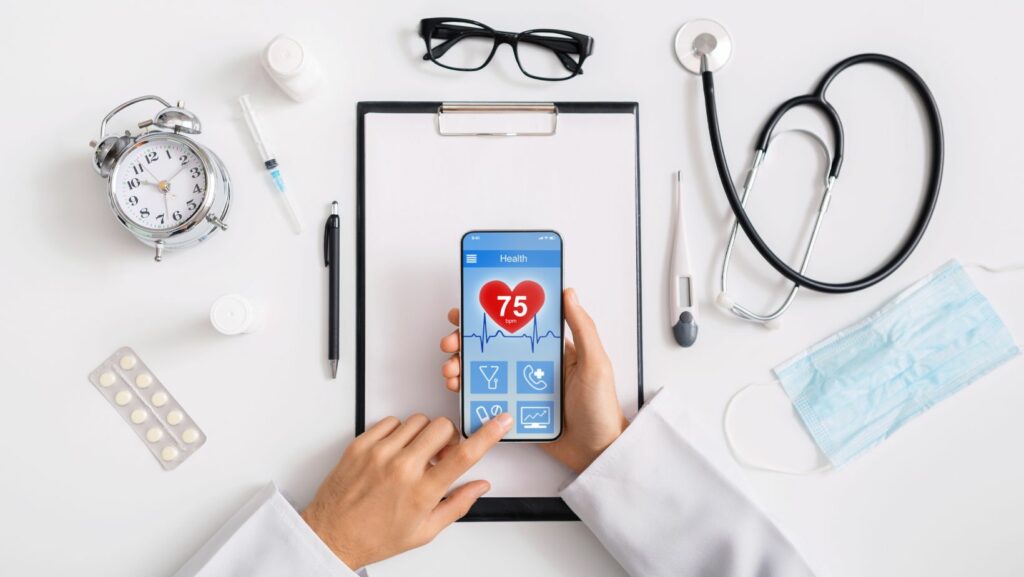
In today’s digital age, the integration of GPS data with health apps is revolutionizing personalized wellness plans. With the ability to track physical activity, monitor sleep patterns, identify stress triggers, and create nutrition plans based on location, GPS data is providing valuable insights for improving overall health. However, along with its numerous advantages come challenges and privacy concerns that need to be addressed.
In this article, we will explore how GPS data integration works, why it is important for personalized wellness plans, best practices for integration, and examples of successful implementations in health apps.
What Exactly Is GPS Data Integration with Health Apps?
GPS data integration with health apps involves incorporating geolocation technology into fitness and health applications to provide personalized experiences and enhance user engagement. The integration of GPS data in health apps functions by collecting and analyzing health data in real-time, providing you with personalized experiences through different GPS tracking devices and user-friendly interfaces.
By leveraging GPS data, health apps can not only track your distance and pace during runs or bike rides but also offer dynamic routes based on your location, ensuring variety and excitement in your workout routine. Personalized fitness routines become more effective when tailored to your specific location and surroundings.
Why Is GPS Data Integration Important for Personalized Wellness Plans?
GPS data integration is crucial for personalized wellness plans as it allows you to set specific goals, access support networks, participate in virtual challenges, and connect with fellow fitness enthusiasts.
By leveraging GPS data, you can track your workout routes, monitor your progress, and receive real-time feedback on your performance. This integration enables tailored recommendations on exercise intensity, duration, and frequency based on your preferences and body metrics.
The incorporation of GPS data into wellness plans also fosters a sense of community by encouraging you to engage in friendly competitions and share achievements with others.
What Are the Major Advantages of Using GPS Data for Health Apps?
Utilizing GPS data in health apps offers numerous advantages, including enhanced user engagement, access to varied workout locations, real-time guidance, and comprehensive insights into personal health and fitness progress.
By incorporating GPS data into health apps, you can enjoy a more interactive workout experience as you receive personalized recommendations based on your location and preferences. This can lead to greater motivation and adherence to fitness routines, ultimately enhancing your overall health outcomes.
The real-time guidance features provided by GPS enable you to track your progress more accurately and make necessary adjustments on the go, resulting in more efficient and effective workouts. The detailed insights into health metrics obtained through GPS data will allow you to better understand your performance and tailor your fitness goals accordingly.
What Are the Challenges of Integrating GPS Data with Health Apps?
Despite its benefits, integrating GPS data with health apps poses challenges related to data protection, regulatory compliance within the healthcare industry, secure data-sharing practices, and the evolving landscape as technology continues to advance.
One major obstacle involves the privacy concerns that arise when personal location data is collected and utilized in health applications. Users are increasingly cautious about sharing sensitive information, especially in the healthcare domain, where confidentiality is paramount. Navigating the complex compliance maze of healthcare regulations adds another layer of difficulty.
Ensuring secure data-sharing protocols is crucial to maintaining the integrity of the information exchanged between different platforms and systems. Developing robust methods for encrypting and transmitting GPS data securely is a continuous challenge for app developers and healthcare providers alike.
The fast-paced and dynamic nature of technological advancements further complicates the integration process, requiring constant updates and adaptations to stay current with the latest tools and practices.
How Can GPS Data Be Used to Create Personalized Wellness Plans?
GPS data plays a pivotal role in crafting personalized wellness plans by tracking your progress, enabling digital health tracking, fostering engagement, and aligning with your individual health goals.
By leveraging GPS data, you can monitor your outdoor activities, such as running or cycling, more accurately. This data can be used to analyze trends over time, set achievable milestones, and adjust fitness routines based on actual performance metrics. In addition, the integration of GPS technology in health apps allows for real-time feedback and personalized recommendations.
-
Tracking Physical Activity and Exercise
One key application of GPS data in health apps is tracking physical activity and exercise, enabling you to log fitness routines, discover optimal workout locations, and maintain privacy regarding your health and wellness data.
By leveraging the capabilities of GPS technology, these apps can provide valuable insights into daily exercise habits, allowing for more efficient monitoring of progress and goals.
-
Monitoring Sleep Patterns
Another valuable use of GPS data integration is in monitoring the users’ sleep patterns through wearable devices, collecting health data related to sleep quality, and contributing to innovative healthcare solutions focused on enhancing sleep management.
With advancements in technology, wearable devices are now equipped with sensors and GPS capabilities that can track various health metrics, including sleep duration, sleep stages, and disruptions. This data offers valuable insights into an individual’s sleep patterns, highlighting trends and identifying potential issues affecting sleep quality.
-
Identifying Stress Triggers
GPS data integration can help in identifying stress triggers by analyzing social wellness indicators, user information, and patterns related to chronic conditions, and handling large volumes of health data efficiently.
By incorporating GPS data integration into health analytics systems, researchers and healthcare providers can gain detailed insights into individual behaviors and environmental factors affecting well-being. This integration enables a deeper understanding of how daily routines, locations, and social interactions impact stress levels and overall health. The integration of GPS data allows for real-time monitoring and personalized interventions to manage stress triggers effectively.
-
Creating Nutrition Plans Based on Location
Innovative applications of GPS data include creating nutrition plans based on your locations, leveraging emerging technologies in health and fitness apps, accommodating your dietary preferences, and addressing potential cyberattack vulnerabilities.
By leveraging the capabilities of GPS technology, you can now access personalized nutritional guidance tailored to your specific location, ensuring that dietary recommendations are not only based on your needs but also take into account environmental factors. This integration of real-time location data enables health and fitness applications to provide timely suggestions and adapt recommendations to match your movements and habits.
What Are the Privacy Concerns Surrounding GPS Data Integration in Health Apps?
Privacy concerns surrounding GPS data integration in health apps revolve around safeguarding user experiences, addressing emerging health technologies, catering to diverse user bases, and maintaining the privacy and security of health and wellness information.
When users utilize health applications that incorporate GPS data, they entrust these platforms with sensitive information related to their location and activities. This raises concerns about who has access to this data, how it is being used, and whether it could potentially be used in ways that compromise user privacy.
What Are the Ideal Practices for Integrating GPS Data with Health Apps?
Implementing best practices for integrating GPS data with health apps involves secure data sharing mechanisms, adaptability to evolving health and wellness trends, leveraging advancing technologies, and enhancing the overall health and fitness experiences for users.

- By incorporating encrypted data transmission protocols, developers can ensure that sensitive location information is safeguarded against unauthorized access.
- Staying abreast of current market demands and user preferences enables app designers to tailor features and services to meet the dynamic needs of health-conscious individuals.
- Embracing state-of-the-art tools like artificial intelligence and machine learning not only boosts app functionality but also provides users with personalized insights for better health outcomes.
What Are Some Examples of Successful GPS Data Integration in Health Apps?
Successful instances of GPS data integration in health apps involve collaborations with healthcare providers, market penetration through app distribution channels, promoting health and wellness initiatives, and engaging fitness enthusiasts in tailored experiences.
Frequently Asked Questions
What is the benefit of integrating GPS data with health apps?
Integrating GPS data with health apps allows for more accurate tracking of physical activity, as well as providing personalized wellness plans based on your location and lifestyle.
How does GPS data help with creating personalized wellness plans?
GPS data can provide information about your daily routines, such as commute routes or frequent locations, which can then be used to tailor a wellness plan to fit your lifestyle and goals.
Are there any privacy concerns with integrating GPS data with health apps?
As with any use of personal data, privacy concerns may arise. However, you can take various steps to ensure the security of GPS data, such as encrypted transmission and user consent.
Can GPS data be used to track all types of physical activity?
While GPS data is primarily used for outdoor activities, such as running or cycling, it can also be used for tracking indoor activities that involve movement, such as dancing or weightlifting.
How often should GPS data be synced with a health app?
It is recommended that you sync GPS data with a health app at least once a day to ensure accurate tracking of your physical activities and location.
What are the limitations of using GPS data with health apps for personalized wellness plans?
GPS data may not be able to track all forms of physical activity, and it may not be as accurate in densely populated or indoor areas. Additionally, GPS data may not take into account other important factors for a personalized wellness plan, such as your diet and sleep routine.













